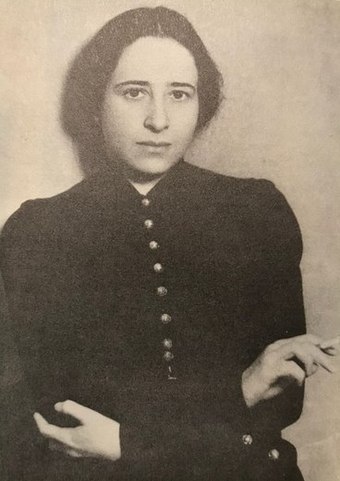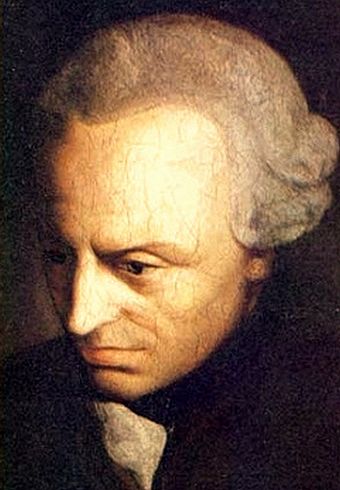111. New Year’s Day: A Celebration of Real Beginnings
Many people make resolutions on New Year’s Day. It is a day of beginnings and endings and is often accompanied by faith and hope in the new.
But can there ever really be a new beginning?
Well, resolutions are often understood as acts of will. But if our will is not free – if all our so-called free choices are just illusions – then every resolution would be necessitated by innumerable events in the past. Likewise, the maintaining or breaking of a resolution would also be necessitated and would have nothing to do with choice or personal responsibility. If you stop smoking you were necessitated to do so; if you keep smoking you were necessitated to do so as well.
In philosophy, determinism is the view that all events are the necessary effects of previous events. There are no possibilities in the world; only necessities. When applying this to systems, one can say that a system is deterministic if there is only one way the system could evolve given its initial conditions and the laws governing it. The following argument can be given for this view:
Premise 1: Every event in the universe has a cause.
Premise 2: Human actions are events in the universe.
Therefore, all human actions are caused, i.e., necessitated or determined to move the way they do.
If this argument is sound, that is, if the premises are true and the conclusion follows validly from the premises, then there is no free will.
But what if we have free will? If we do, then there are real beginnings taking place whenever a genuine choice from among real alternatives occurs. To be sure, we are always influenced by many factors. But if we are freely choosing then we can’t be completely determined by them. Hannah Arendt elaborates on action and real beginnings:
“To act, in its most general sense, means to take an initiative, to begin (as the Greek word archein, “to begin,” “to lead,” and eventually “to rule,” indicates), to set something in motion (which is the original meaning of the Latin agere)….This beginning is not the same as the beginning of the world; it is not the beginning of something but of somebody, who is a beginner himself. With the creation of man, the principle of beginning came into the world itself, which, of course, is only another way of saying that the principle of freedom was created when man was created but not before….The fact that man is capable of action means that the unexpected can be expected from him, that he is able to perform what is infinitely improbable. And this again is only possible because each man is unique, so that with each birth something uniquely new comes into the world.” (The Human Condition, chapter 5).
Hannah Arendt, 1933
Such originating action would be, to borrow a phrase Plato employed in his dialogues Phaedrus and Laws, “self-moving” and would be quite different from the other forms of motion with which we are familiar. According to Immanuel Kant, it would also be the inner value of the world. In his Lectures on Ethics from the early 1780s he wrote:
“Freedom is, on the one hand, that faculty which gives unlimited usefulness to all the other faculties. It is the highest order of life, which serves as the foundation of all perfections and is their necessary condition. All animals have the faculty of using their powers according to will. But this will is not free. It is necessitated through the incitement of stimuli, and the actions of animals involve a bruta necessitas [animal necessity]. If the will of all beings were so bound to sensuous impulse, the world would possess no value. The inherent value of the world, the summum bonum [highest good], is freedom in accordance with a will which is not necessitated to action. Freedom is thus the inner value of the world.”
Immanuel Kant
Freedom of the will is that which differentiates our species from all other species and makes us capable of moral judgment and responsibility. And freedom is the condition for the possibility of other things being good: intelligence without free will couldn’t be morally evaluated as good, altruistic action without a freely chosen motive wouldn’t be good, dedication with freedom wouldn’t be admirable, and so on. Since our free will is that which allows things to be good in the first place it is intrinsically worthy and is the proper object of our respect. And our possession of it is the ground for our inherent value as humans.
But are we free? I think so in large part because of Kant’s argument that can be paraphrased as follows:
Premise 1: If we are morally responsible then we have free will: without free will the whole notion of choosing and being responsible for a choice would be nonsense.
Premise 2: We are indeed morally responsible as the practical aspects of our lives show: our personal relations, legal system, and political realities are infused with concepts of choice, shame, regret, guilt, accountability, violations, responsibility, punishment, and so on.
Therefore, we are free.
I give other reasons against determinism and in defense of free will here. But I am not trying to settle this controversial topic. I just want to point out that if you, too, think free will exists then you might agree with me that New Year’s Day is an appropriate day to celebrate the reality, wonder, and hope of our value-giving freedom and the true and often unexpected beginnings it inaugurates.
Happy New Year!
Dwight Goodyear


Happy New Year Dr. Goodyear, here are some thoughts:
Placing one’s belief in determinism really feels like the ultimate cognitive surrender, it grants you emotional security in exchange for your dignity. Why should we care about the new year? If we are here for a predetermined reason then that outcome will be achieved no matter what I do or what time it is, guess I’ll go back to playing Minecraft.
This is an approach I feel like I have surrendered to especially as of late with the lack of structure in my life from graduating college and the influence of COVID-19. I lumber forward and figure eventually I will be angry enough with myself and my surroundings for something to happen, a spark. Surely one day I will wake up and be so angry that I pick a long term direction and take initiative, but the day never comes. This is a romantic way of thinking since much of the drive that fruits creativity comes from dark places but surrendering to this determinist point of view doesn’t seem like it will ever produce anything positive whatsoever.
It’s easy to feel at home in the universe when you believe you’re here for a good reason and your life will unravel in such a way to meet that end. This is a mindset I think I wrestled myself into during dark times in the past to carry me forward. Thinking back I thought this to generate confidence in myself despite the odds, it was a method of survival and a bad faith argument, problem is you can only fool yourself for so long. When reflecting upon topics surrounding one’s potential I often think about the point of view of late writer Charles Bukowski. He famously said “Don’t try” if we are meant to do something we will do it:
“Somebody asked me: “What do you do? How do you write, create?” You don’t, I told them. You don’t try. That’s very important: not to try, either for Cadillacs, creation or immortality. You wait, and if nothing happens, you wait some more. It’s like a bug high on the wall. You wait for it to come to you. When it gets close enough you reach out, slap out and kill it. Or if you like its looks, you make a pet out of it.”
Potential is wasted energy, if we didn’t obsess so much about what we’re capable of and how to get it done then maybe we would be better off. Thing is this hasn’t worked for me functionally and If determinism were true then nature would be the force that drives success and this is a premise that doesn’t sit well with me either. One thing I do believe is that the world is inherently against us, this does not mean we can’t succeed but it does mean that for many of us it won’t come easily and surely stagnation won’t result in beating the house.
Free will is the thing that gives us the choice to rise above the privations that are given to us by nature. Problem is free will is scary, having to face your rational potential head on is scary. Free will is meaningless without the courage or drive to live up to one’s moral obligations and rational potential. It’s almost like this whole free will/determinism argument is flipped on its head completely as actions are what gives free will value and our own thoughts, rather than outcomes or nature itself, are the thing that gives a determinist outlook value. If we believed we were destined for failure why would you even entertain a determinist outlook? The only reason I can think of is there is a tremendous weight lifted off my shoulders when I say “If it is meant to be it will be” especially in regards to love and relationships where one only has so much control to reach a desired outcome.
If we treated every morning with the same ‘rising from the ashes’ attitude that we do for New Years’ then we would be in much better shape; this may be effective way of living but it’s far from desirable, living life like that really puts the mathematical sublime in perspective. We may feel small and insignificant in the scope of the universe and that time is against us but it seems like vigilant time management is a facet to success. Potential is a value that never has to be proven just as a predetermined outcome is an end that we never have to consciously work towards, the problem is I’m looking to cash out at some point and cognitive dissonance can only keep you in the dark for so long.
Happy New Year John! Thanks for sharing your thoughtful insights. You make a lot of good points that need to be added to any discussion of free will. I like your points that courage is needed for resolutions, that the burdens of freedom (responsibility for example) can be scary, that we may need to be stoic in some cases (such as romantic relationships) where the scope of our freedom may be limited, and that we can still succeed to some extent despite the forces against us. I also appreciate your connections with Sartre’s bad faith and Kant’s mathematical sublime (and remember to add the dynamic sublime which pertains to our capacity for freedom in the face of nature’s overwhelming might – this form seems particularly relevant these days). I can see that you are wrestling with this issue of freedom existentially (as did William James in his essay “The Dilemma of Determinism” which you should check out in an online PDF) and you are, no doubt, not alone in doing so. This pandemic is preventing millions from actualizing so many of their potentials. But it will pass. And perhaps all the thinking and soul searching you are currently engaged in will help you see the COVID-19-free future in very different and liberating ways. Sometimes a massive interruption of our life can serve us well. So hang in there and always feel free to reach out to talk.